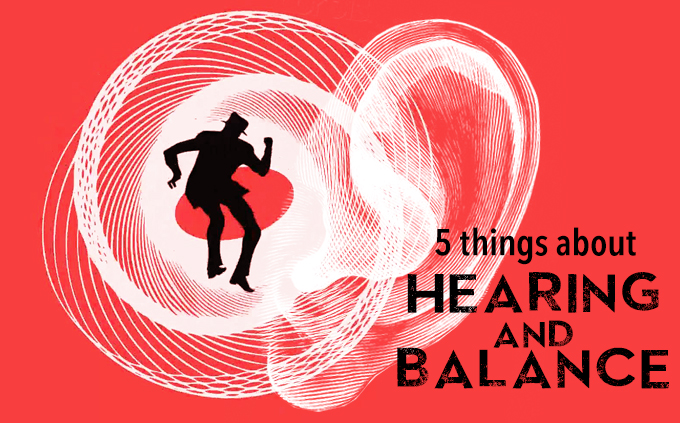
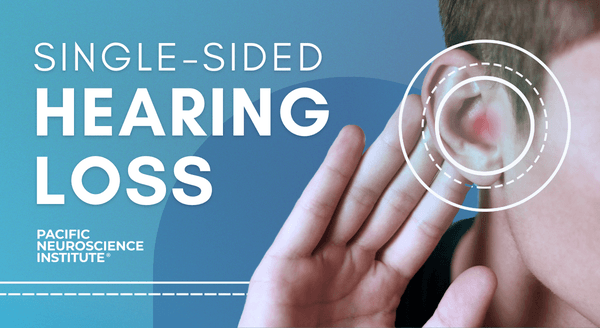
Unilateral Hearing Loss: Causes, Symptoms and Treatments
by Brianna Rauchman
Discover the causes, symptoms, and treatments of Unilateral Hearing Loss (UHL) with expert insight from an Ear, Nose and Throat (ENT ) surgeon. Learn about hearing loss solutions available at Pacific Eye, Ear, and Skull Base Center in Santa Monica, including hearing aids, medication and cochlear implants.
Understanding Unilateral Hearing Loss
Unilateral Hearing Loss (UHL), also called “single-sided deafness,” is characterized by reduced hearing in one ear. However, the impact of UHL extends far beyond auditory constraints, as hearing health is deeply connected to overall well-being.
According to Courtney Voelker, MD, PhD, a distinguished neurotologist and ENT surgeon at Pacific Neuroscience Institute® (PNI®), hearing plays a vital role in communication, speech and language development, attention abilities, daily energy levels, and educational success. Furthermore, hearing loss is associated with dementia, cognitive decline, and depression. Even a mild level of hearing loss can significantly reshape one’s life, impacting academic achievement and social interactions.
Causes of Unilateral Hearing Loss
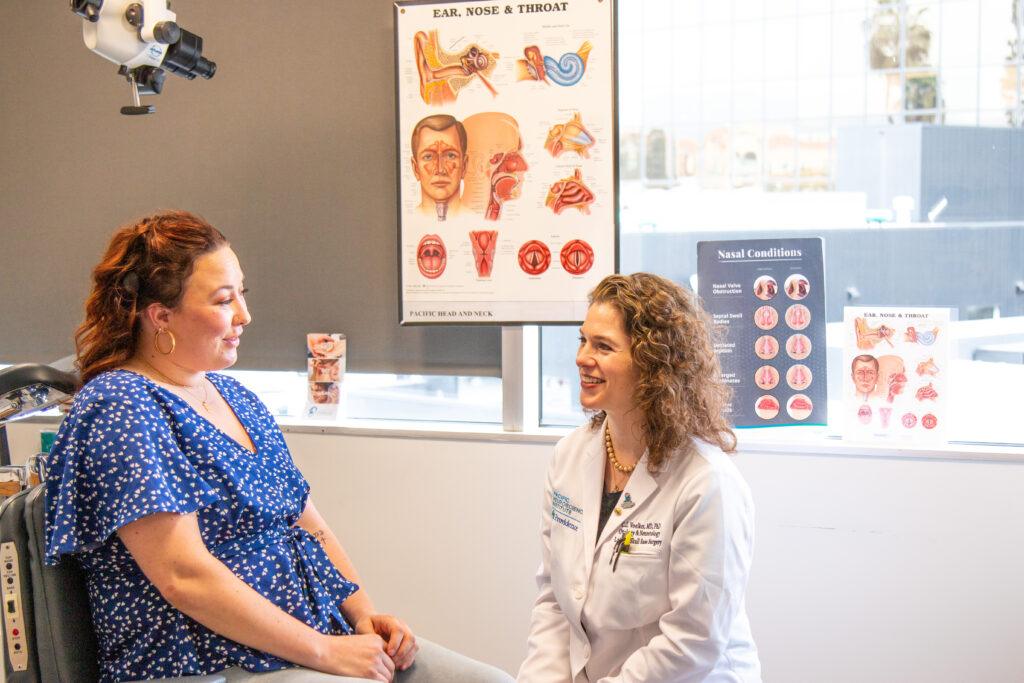
There are numerous underlying factors that may contribute to UHL, encompassing both congenital (present at birth) and acquired causes.
Congenital Causes:
- Genetic and hereditary factors
- Maternal infections during pregnancy
- Complications during childbirth
Acquired Causes:
- Ear infections
- Head trauma or injury
- Benign or malignant growths in the ear
- Exposure to excessive noise
- Ototoxic medications
- Sudden sensorineural hearing loss (SSHL)
Symptoms of Unilateral Hearing Loss
The symptoms of Unilateral Hearing Loss can be complex and vary from person to person.

Common Symptoms:
- Challenges in sound localization
- Diminished perception of soft or distant sounds
- Reduced speech comprehension in noisy environments
- Tinnitus (ringing in the ears)
- Vestibular disturbances (balance Issues or dizziness)
Diagnosis and Treatment
A timely and precise diagnosis of UHL necessitates specialized audiological and otological assessments. Following a comprehensive medical evaluation, which may include blood tests, hearing tests, and radiographic studies, ENT physicians will make informed decisions regarding the need for either medication or surgical intervention. Treatment options for UHL may include:
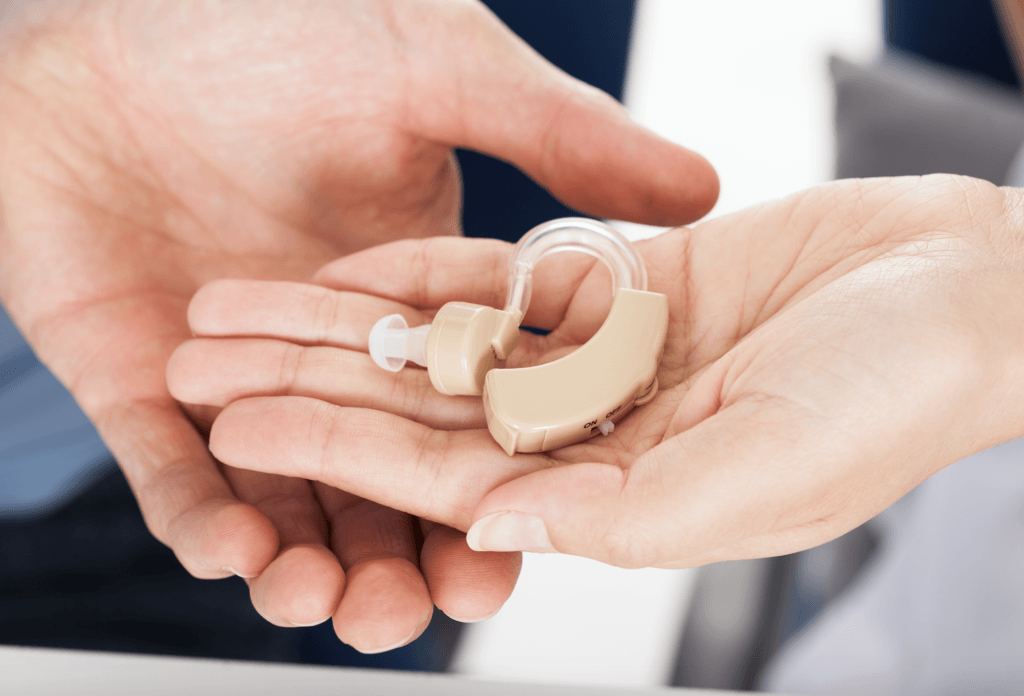
Hearing Aids:
Often, a straightforward remedy for significant hearing loss lies in the use of hearing aids. The introduction of auditory stimulation through hearing aids can contribute to the preservation and potential delay of hearing nerve atrophy in individuals facing substantial hearing loss.
Medications:
In instances of severe tinnitus, a comprehensive approach may be necessary, combining hearing aids with medication, vitamins, tinnitus maskers, tinnitus retraining therapy, and/or biofeedback therapy. In select cases, intratympanic injection of medication may be considered as part of the treatment plan.
Cochlear Implants:
For individuals experiencing hearing loss that no longer responds to hearing aids, cochlear implants may emerge as a viable option. Our leading-edge cochlear implant program at PNI is designed to ensure a streamlined and efficient evaluation and treatment process for eligible patients.
Coping Techniques:
Living with Unilateral Hearing Loss requires effective coping strategies. It is important for individuals with UHL to advocate for themselves when communicating. Additionally, joining hearing loss support groups and utilizing counseling resources are valuable for emotional support and practical guidance.
How to Prevent Hearing Loss
Mitigating your risk of developing UHL involves:
Utilizing Hearing Protection:

Dr. Voelker recommends prudent utilization of hearing protection in environments characterized by excessive noise, such as concert venues or industrial settings.
Moderating Exposure to Intense Sound:
It is essential to practice vigilance in moderating sound volume, whether in the realm of music consumption or attendance at noisy events. Dr. Voelker suggests downloading a sound level meter application on your phone to monitor your listening environment. Occupational Safety and Health Administration (OSHA) standards state the maximum permissible exposure of 85 dB in 24 hours.
Timely Management of Ear Infections:
Prompt intervention for recurrent or persistent ear infections mitigates the risk of enduring hearing loss.
Hearing loss diagnostics available at PNI
Unilateral Hearing Loss demands comprehensive understanding and professional care. It is more than a mere audiological condition; hearing loss is profoundly connected with cognition, communication, and emotional well-being. If you find yourself confronting UHL, do not hesitate to seek assistance at Pacific Eye, Ear, and Skull Base Center.
At PNI’s Pacific Eye, Ear, and Skull Base Center, we can offer comprehensive audiologic and otologic evaluations to establish baseline hearing health and follow-up care. If you are struggling with hearing loss or tinnitus, we can offer rehabilitative support which may include custom hearing protection, hearing aids, cochlear implant evaluations, and counseling.
Dr. Voelker
About Dr. Voelker

Courtney Voelker, MD, PhD (DPhil Oxon), is a Rhodes Scholar and board-certified neurotologist. She is Director of Otology/Neurotology-Lateral Skull Base Surgery; and Director of the Adult & Pediatric Cochlear Implant Program at Pacific Neuroscience Institute. She is an otolaryngology – head & neck surgeon who takes care of adult and pediatric patients seeing a wide range of inner ear and skull base conditions. Highly accomplished in the clinic and in research, she is committed to offering top quality, compassionate care to all her patients. More information: 310-477-5558
Related Links
- Meet the Team – Pacific Eye, Ear, and Skull Base Center
- Hearing Loss – Pacific Eye, Ear, and Skull Base Center
Related Videos
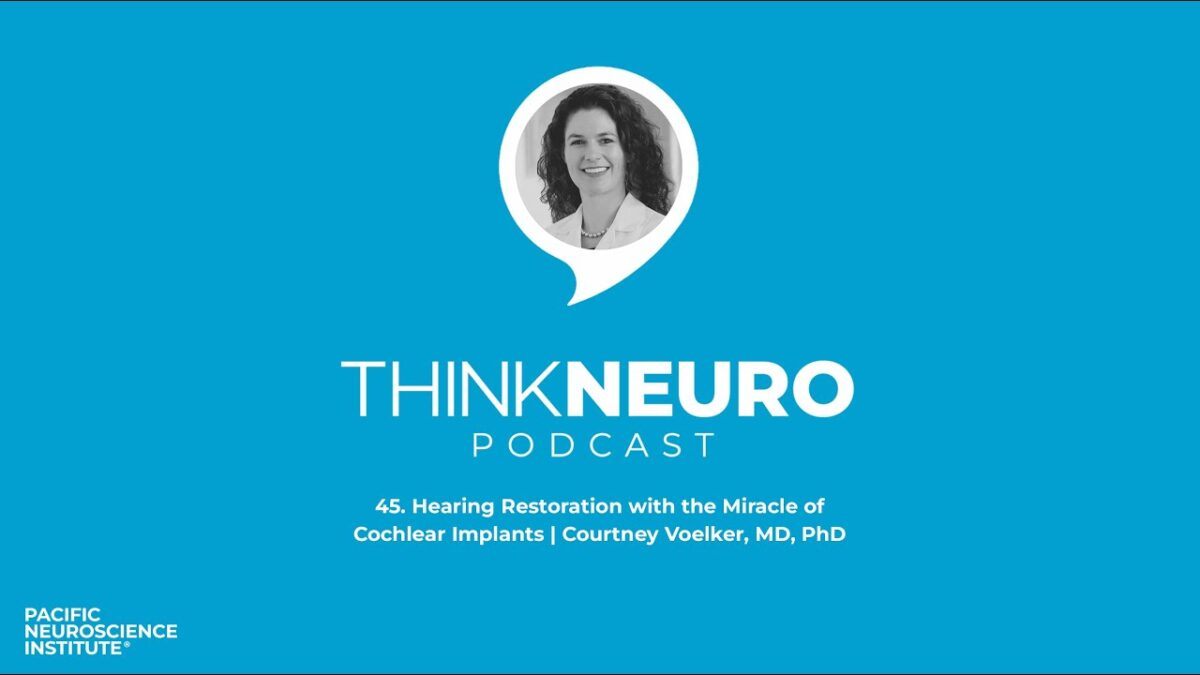 Hearing Restoration with the Miracle of Cochlear Implants | Courtney Voelker, MD, PhD
When people notice their vision blurring, they will frequently dash off to the eye doctor. Not so with hearing loss. It often goes ignored and undiagnosed until it becomes unbearable.…
Hearing Restoration with the Miracle of Cochlear Implants | Courtney Voelker, MD, PhD
When people notice their vision blurring, they will frequently dash off to the eye doctor. Not so with hearing loss. It often goes ignored and undiagnosed until it becomes unbearable.…
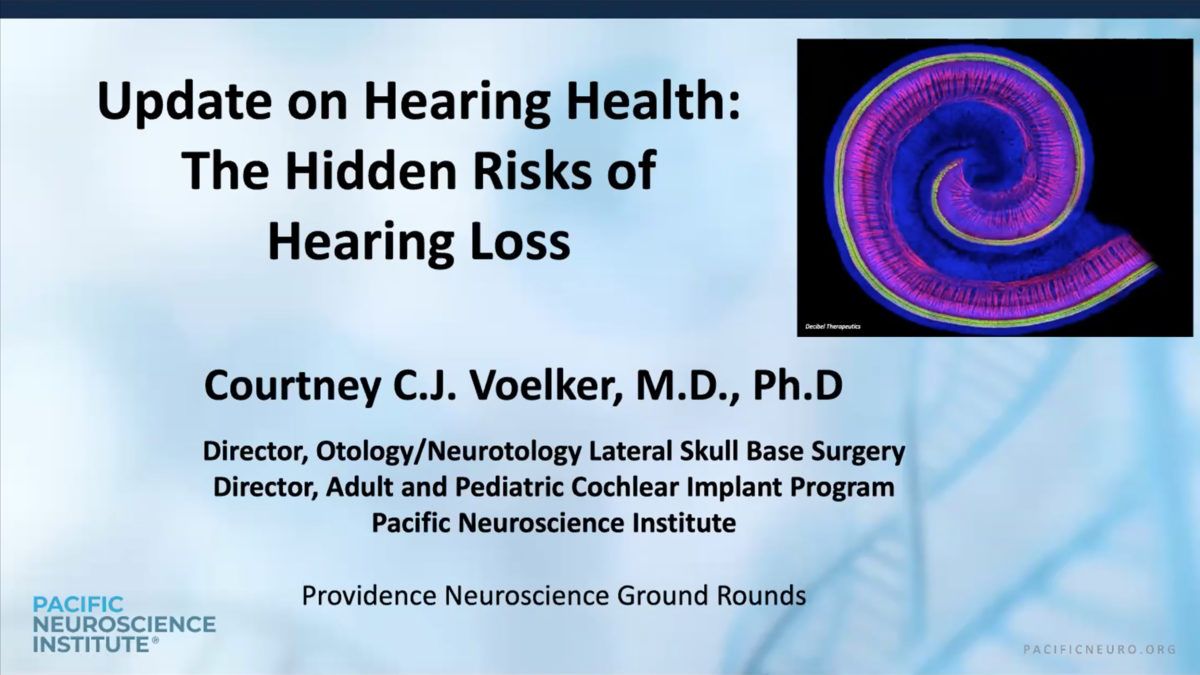 17. May, 2022: Updates on Hearing Health: The Hidden Risks of Hearing Loss
17. May, 2022: Updates on Hearing Health: The Hidden Risks of Hearing Loss
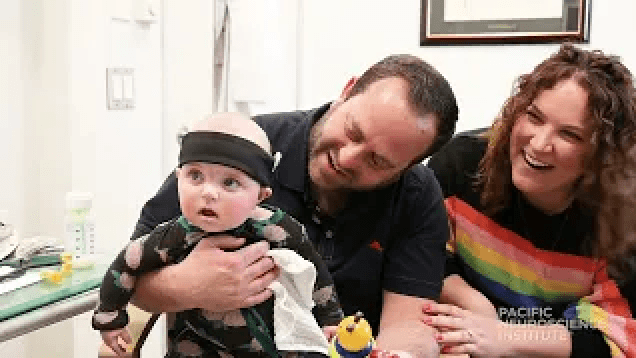 Pediatric Cochlear Implantation for Bilaterial Hearing Loss | Sienna’s Story
Sienna was born with profound bilateral hearing loss (deafness in both ears). As her family’s hearing modality choice is listening and spoken language, they decided to pursue cochlear implant surgery…
Pediatric Cochlear Implantation for Bilaterial Hearing Loss | Sienna’s Story
Sienna was born with profound bilateral hearing loss (deafness in both ears). As her family’s hearing modality choice is listening and spoken language, they decided to pursue cochlear implant surgery…
 Rediscovering Music After Hearing Loss | Ronnie’s Inspiring Patient Story
Ronnie overcame severe ear pain and hearing loss with the help of Courtney Voelker, MD, PhD, at Pacific Head and Neck . Follow his journey through two successful surgeries to…
Rediscovering Music After Hearing Loss | Ronnie’s Inspiring Patient Story
Ronnie overcame severe ear pain and hearing loss with the help of Courtney Voelker, MD, PhD, at Pacific Head and Neck . Follow his journey through two successful surgeries to…
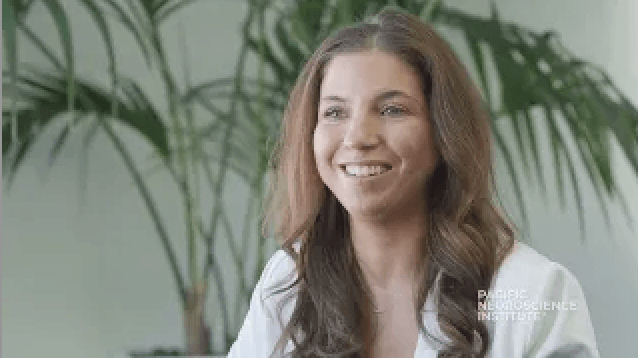 A PNI Minute | What Are Cochlear Implants?
The cochlear implant is an electronic device that is implanted into the inner ear (the cochlea) to restore hearing in patients for whom hearing aids are no longer effective or…
A PNI Minute | What Are Cochlear Implants?
The cochlear implant is an electronic device that is implanted into the inner ear (the cochlea) to restore hearing in patients for whom hearing aids are no longer effective or…
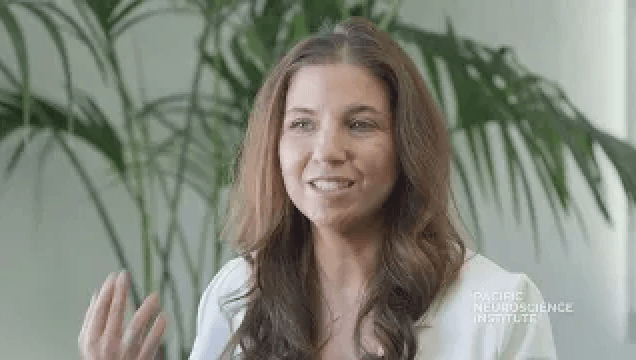 A PNI Minute | 5 Myths About Cochlear Implants
Though cochlear implants are incredibly useful in improving patients hearing, there are still many misconceptions and myths that surround them. For example, it’s a common misconception that deafness is a…
A PNI Minute | 5 Myths About Cochlear Implants
Though cochlear implants are incredibly useful in improving patients hearing, there are still many misconceptions and myths that surround them. For example, it’s a common misconception that deafness is a…
 Cochlear Implant Program at Pacific Neuroscience Institute | Dr. Courtney Voelker
Cochlear Implant Program at Pacific Neuroscience Institute | Dr. Courtney Voelker
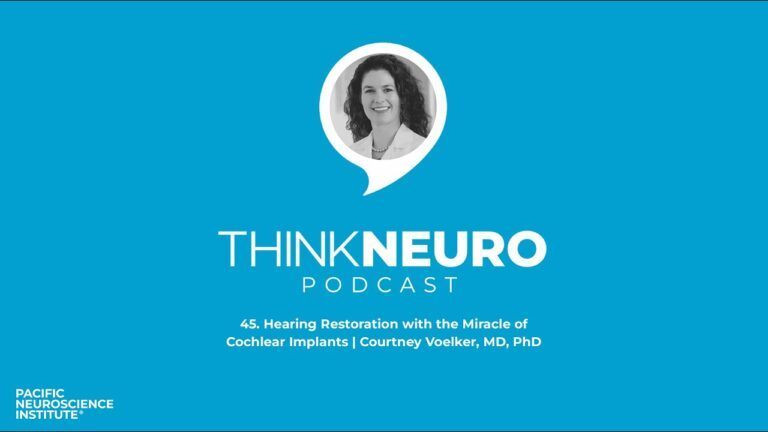
Hearing Restoration with the Miracle of Cochlear Implants | Courtney Voelker, MD, PhD
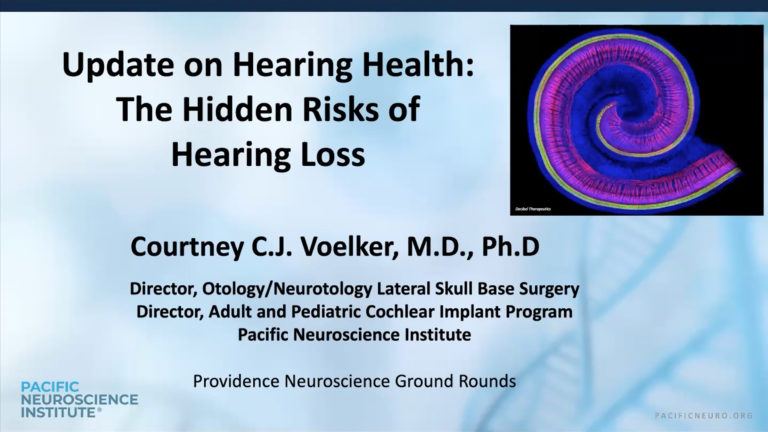
17. May, 2022: Updates on Hearing Health: The Hidden Risks of Hearing Loss

Pediatric Cochlear Implantation for Bilaterial Hearing Loss | Sienna’s Story

Rediscovering Music After Hearing Loss | Ronnie’s Inspiring Patient Story

A PNI Minute | What Are Cochlear Implants?

A PNI Minute | 5 Myths About Cochlear Implants
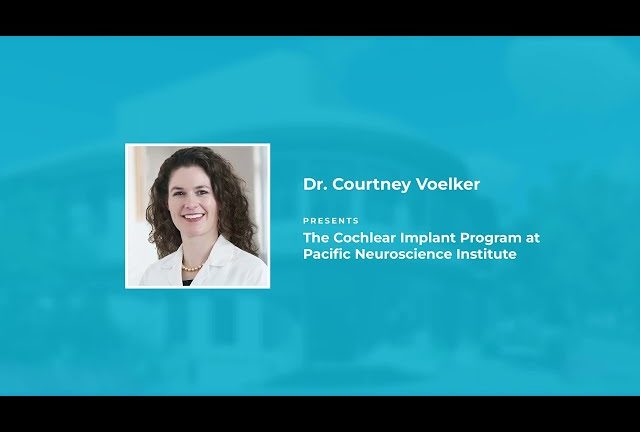
Cochlear Implant Program at Pacific Neuroscience Institute | Dr. Courtney Voelker
About the Author
Brianna Rauchman
Brianna Rauchman, BA, is the Communications Coordinator for the Lifestyle Program, where she helps develop outreach strategies to connect with an expanding audience. Her responsibilities include providing launch support, developing content, assisting with collateral design, and planning social media strategies.
Last updated: October 13th, 2023


